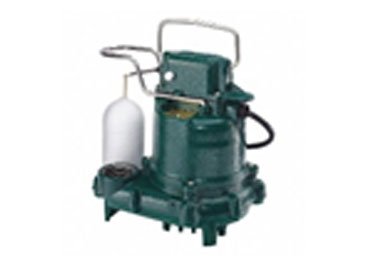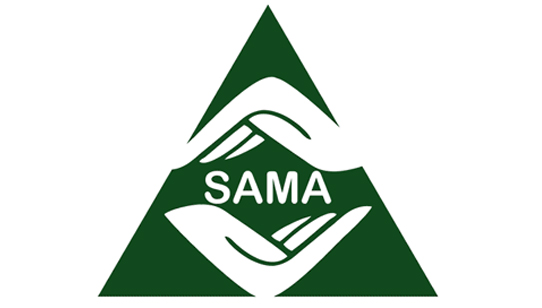How To Maintain Your Sump Pump

- by Arindam Bhadra
Sump pumps are your first line of defence to keep water out of your basement. They also protect your foundations and the structural integrity of your building. Sump pump maintenance will take no more than around 10 minutes to complete and you will need to check the operation of your sump pump and ensure it is there for you whenever you need it.
Tips for sump pump maintenance
- • This will keep out animals and children as well as ensuring you do not have any debris falling into the basin.
- • A cover will also reduce the smells and evaporation
Inspect for debris
Inspect the basin/sump for any debris and remove any you might find before operating the pump. We do not want this to get into the sump pump intakes or even block the pump. So,always ensure you remove the debris first before you test the pump.
Check pump screens/ Inlet screens
Check the inlet screens on your pump are free from debris and residue build up, as if they are blocked up this will reduce the operational efficiency of your sump pump. This will reduce the volume of water the pump removes. If needed bring a hose and wash down the externals of the sump pump as well as the basin to remove all debris that may affect the operation of the pump.
Electricity and safety
As there is electricity and water within the same installation you should ensure you are electrically protected using a ground fault indicator (GFI). This should keep you safe as it should trip the electricity if there is a fault. Check the operation of this if there is a test facility to do so.
Cable routing
Check for correct cable routing as well as the cable being in good condition. Make sure the cable is away from the water as much as possible. Also check the cable is secured and not loose and in a situation where it might fall into the sump. This could prove lethal and have happened in some rare circumstances. So check the cable is fixed and secure.
Check your discharge pipes
Always have a check valve fitted, this is to stop the pumped water within the discharge pumped line from returning into the sump and refilling the sump once pumped away. It only allows the water to move in one direction, which of course is out of your sump. If this is faulty you will see your sump re-filling and your pump will run more frequently.
Check the discharge line for leaks or damage. Make sure all is intact including the end of your pumping line. If you are able to visually see the pumped line ensure the end is free to allow the pumped water to properly run clear.
Water test your pump
Fill the sump with water very slowly and observe the operation of the sump pump. This way you can watch the operation of the float switch, ensure it rises with the water level and moves easily and freely.
Check the operation of the float switch
Once the float rises to the switch on point you want to observe the sump pump running. You should of course listen to the pump as well. What you are listening for in this case is the connection of the float switch and that the switch makes without any hesitation or resistance and runs the pump properly. As the float switch is considered one of the weak points of a sump pump you can observe this in this test and ensure your switch operates normally. If the switch is intermittent or not operating normally you may be able to replace the switch and not need to buy a replacement sump pump.
Listen to the pump
Now the pump is running you want to listen to the pump itself running. Make sure there are no squealing or grinding noises or even metal on metal. With the sump pump running there should be some minor vibrations, if there are excessive vibrations then you must investigate this. Excessive vibration or noises may indicate the bearings or internal workings of the pump may be wearing out. In cases like this it might be best to have a replacement sump pump near hand in case you have to replace a pump in a hurry.
Operate the pump several times
Operate the pump like this several times just to get the pump operating efficiently and also check that the sump pump also stops pumping whenever the water level is pumped down to a suitable level and the switch has returned to a resting position. In general what you are doing is checking complete cycles of the sump pump to check it is working as it should do when it might be needed.
Check Valve operation
Listen for the check valve click as well within this operation sequence; you want to hear the check valve operating as the pump stops pumping. The check valve should close with a click and stop the water from returning into the sump.
Points to consider for the maintenance of your sump pump and pump installation
- • Keep a cover over the sump basin.
- • Inspect for debris
- • Check pump screens/ Inlet screens
- • Electricity and safety
- • Cable routing
- • Check your discharge pipes
- • Water test your pump
- • Check the operation of the float switch
- • Listen to the pump
- • Operate the pump several times
- • Check Valve operation
- • Replace all covers and parts
Once you are happy with the operation of your sump pump and you have checked everything over you need to ensure you replace all parts and covers into their correct location for the operation of the pump.
You should also periodically check in on your sump pump just to ensure it will be there for you whenever needed.
Pump maintenance entails a number of procedures, most of them simple yet important, that must be performed before and after use.
Depending on how often and how much they’re used, full service maintenance will need to be undertaken.
Pump Inspection, repair and replacement should only be carried out by NFPA certified servicing person from related product company.
But there are some simple checks you can do to save disruptive down time and thousands of dollars in pump replacement or repairs.
- • Check pump for noisy bearings and cavitation.
- • Check for unusual vibration.
- • If applicable, check bearing oil for water and discoloration.
- • Feel all bearings for temperature.
- • Inspect bearings and oil rings through filling ports, if
- • Check oil leaks at the gaskets and flanges
Since some pumps are used in environments where poor performance could pose a risk, it’s absolutely necessary that any pump work is performed by experts.
Calibration: Periodic calibration to ensure that flow rate is according to specifications is one of the to-do’s in maintenance. Failure to do so can result in pump performance being adversely affected and may even lead to accidents. Keeping track of any changes in the pumping system’s performance also aids in making sure pumps work properly.
Checking pump drive system: Pumps driven by motors, either diesel or electrical power, are prone to changing with the temperature. So, cold days will see pump function drop because the depending on the fluid being pumped and if diesel driven the viscosity of the fuel. The same applies to high temperature. Required adjustments, therefore, must be made prior to powering up the system and observing the pump monitoring system and checking the connections and pipework for cracks, leaks and breaks should also be carried out.
Checking the fittings: Daily inspection or prior to use of parts which include mounting feet, nuts, bolts, gaskets, flanges and similar hardware throughout out the system for damage or malfunction. Battery cables, wiring, fans and belts should be inspected too.
Checking the suction and discharge hoses or pipes: Since all fluids to be removed is done through hoses and/or pipework, doing regular checks on them prior to use and while in use is necessary. Some hoses and pipelines will need to comply to various standards and guidelines relating to their use and testing, but generally should be inspected to suit the conditions of use. Clamps and fastener points should also be checked.
There are many, many types of pumps. It’s a long list. Each industry has need for specific models and together, they cover a vast range. Maintenance requirements are therefore, different, so what’s meant for a gear pump, for example, may not be suitable for a syringe pump.
Since the maintenance requirements for various types of pumps vary, leaving the work to maintenance experts can mean cost-effectiveness and less room for error.
At Complete Fire and Pumps we have a team of dedicated experts with full servicing capabilities on-site, or off, with our fully equipped service vehicles and state of the art pump service centre. To ensure your pumping system remains online and performing at optimum capacity, contact us today!
(This "Fire Safety Blogs" Published in March 2023 Edition)





.png)







